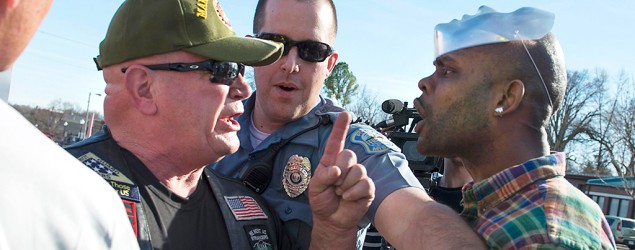 So, today is Cinco de Mayo; the history behind why Americans celebrate May 5th had me thinking about how a small group of people definitely living in a different era took a stand and while there are many stories of how people in our past stood up; such as John Lewis, MLK,Dorothy Height and others , who most often marched … Peacefully — maybe we in the 21st Century should gain strength from these stories of how these great people stood up f themselves, had the courage to challenge laws rules and legislation that clearly perpetuated discriminatory behavior …
So, today is Cinco de Mayo; the history behind why Americans celebrate May 5th had me thinking about how a small group of people definitely living in a different era took a stand and while there are many stories of how people in our past stood up; such as John Lewis, MLK,Dorothy Height and others , who most often marched … Peacefully — maybe we in the 21st Century should gain strength from these stories of how these great people stood up f themselves, had the courage to challenge laws rules and legislation that clearly perpetuated discriminatory behavior …
We the People of the 21st Century need to stand up stand tall and stand together against the people that seemingly want to take the rights away from a select few… Gotta say just considering a move toward or anything that is even remotely close to stripping our citizens rights away makes me scratch my head …whatever happened to being innocent until proven guilty? maybe not in this era of trump
As we all hear politicians hawk their claim to fame or what they will do for you. The media is going through their poll numbers spreading their collective rhetoric. I don’t know about you, but polls mean nothing when my vote hasn’t be included though the fact is … most democrats do show up to national elections more often and to be sure the day that Barack Obama became President was the day that MIDTERMS became just as important and as the midterm races begin, hopefully a shift in reality will be to a hard left. Americans need to be reminded that midterms matter so vote for a member for Congress that will have courage to put Politics aside and do the work of the People to correct the years of questionable behavior on both sides of the aisle … If you want to live in a 21st Century America as most of us do, that means telling the 1% your trickle down solution for the middle and lower class stopped working a long time ago. While republicans say cutting slashing and eliminating social programs is good because it will make folks more self-sufficient ask yourself how many of your members of Congress or their family needed help is on Medicare/caid Social Security or has had to deal with that donut hole that actually hurt our Seniors. Republicans in Congress are in it to win off the backs and at a cost to you your family least we talk about civil human reproductive rights and our earth!
speaking of which …
Our environment has been put on the back burner since the trump admin came to power and now it is in serious jeopardy. The Obama Administration had environmental challenges and this admin needs to demand in-depth evaluations on the way BP ,Massey mining were handled while getting ready for more natural ones. The BP oil spill was a warning to Oil Corporations, who side stepped protocol and safety practices. In the of case BP it was obvious … at least to most, that in the event of a spill … a safety procedure should be deployed immediately, not made and put in place after the fact. We owe our children and the next generation a chance to breathe, live/have infrastructure for 21st Century living.
Americans want and need Congress to have the courage to regulate big Corporations! We need a complete overhaul on how oil drilling and transportation is handled in the future…
The Battle of Puebla took place on May 5th, 1862, near the city of Puebla during the French intervention in Mexico. The battle ended in a victory for the Mexican Army over the occupying French forces.
4,000 Mexican soldiers smashed the French and traitor Mexican army of 8,000 at Puebla, Mexico, 100 miles east of Mexico City on the morning of May 5 1862. For more info: history.com







You must be logged in to post a comment.